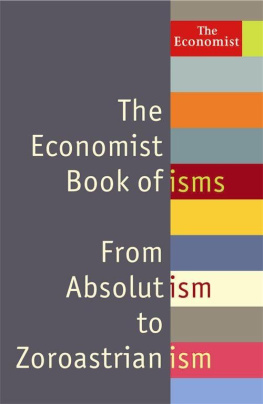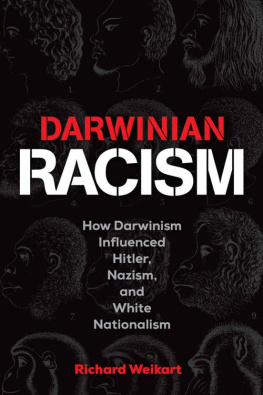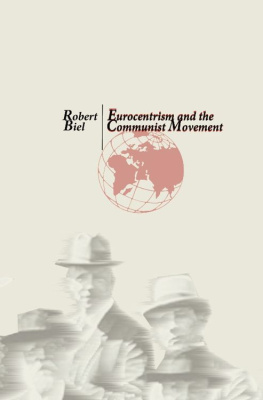BOOK OF ISMS
OTHER ECONOMIST BOOKS
Guide to Analysing Companies
Guide to Business Modelling
Guide to Business Planning
Guide to Economic Indicators
Guide to the European Union
Guide to Financial Management
Guide to Financial Markets
Guide to Hedge Funds
Guide to Investment Strategy
Guide to Management Ideas and Gurus
Guide to Organisation Design
Guide to Project Management
Guide to Supply Chain Management
Numbers Guide
Style Guide
Book of Obituaries
Brands and Branding
Business Consulting
Buying Professional Services
The City
Coaching and Mentoring
Dealing with Financial Risk
Doing Business in China
Economics
Emerging Markets
The Future of Technology
Headhunters and How to Use Them
Mapping the Markets
Marketing
Organisation Culture
Successful Strategy Execution
The World of Business
Directors: an AZ Guide
Economics: an AZ Guide
Investment: an AZ Guide
Negotiation: an AZ Guide
Pocket World in Figures
Book of isms
from Abolitionism to Zoroastrianism
John Andrews

THE ECONOMIST IN ASSOCIATION WITH PROFILE BOOKS LTD
First published in Great Britain in 2010 by
PROFILE BOOKS LTD
3A Exmouth House
Pine Street
London EC1R 0JH
www.profilebooks.com
This eBook edition published in 2010
Copyright The Economist Newspaper Ltd, 2010
Text copyright John Andrews, 2010
The moral right of the author has been asserted.
The greatest care has been taken in compiling this book.
However, no responsibility can be accepted by the publishers or compilers for the accuracy of the information presented.
Where opinion is expressed it is that of the author and does not necessarily coincide with editorial views of The Economist Newspaper.
Typeset in EcoType by MacGuru Ltd
This eBook is copyright material and must not be copied, reproduced, transferred, distributed, leased, licensed or publicly performed or used in any way except as specifically permitted in writing by the publishers, as allowed under the terms and conditions under which it was purchased or as strictly permitted by applicable copyright law. Any unauthorised distribution or use of this text may be a direct infringement of the authors and publishers rights and those responsible may be liable in law accordingly.
A CIP catalogue record for this book is available from the British Library.
eISBN 978 184765 179 2
To my son, Tom, a true wordsmith
Contents
Preface
What is an ism? the etymologists, harking back via medieval French and Latin to Greek words that end in ismos, will say those three letters are a convenient suffix: add them to a noun or adjective, or to the stem of a verb, and, to the delight of philologists, you add meaning, distinction and nuance. Terror becomes terrorism; global becomes globalism; baptise becomes baptism. Inventive types will add ism to all manner of words a Bushism, for example, for any of the many malapropisms uttered by Americas 43rd president. Bushism has the same linguistic form as Reaganism, or Thatcherism or Marxism, and yet is conceptually different. For Messrs Reagan, Thatcher and marx, their isms define their political and economic ideologies; despite the existence of a Bush doctrine, his ism describes merely his verbal oddities.
Purists may argue that a list of isms should be confined to the doctrines of religion, the schools of philosophy, the vagaries of society or the mysteries of science and medicine. Our approach is more forgiving: Bushism enters our list because it means something just as clear, in its own way, as Marxism. So does schism, which is not properly speaking an ism at all (its last three letters are not a suffix but are part of the stem) but which is an informative little word given the number of religious isms that follow from one schism or another. And because schism is in, prism must enter the list too though it is surely intrinsically less interesting.
In the English language isms have existed since at least the late 17th century, and their number increases by the year. Dadaism could not exist before Dada and Dada was not launched until 1916; Darwinism could not exist before Darwin. Most isms go hand-in-hand with an ist: a Marxist believes in Marxism; a Calvinist in Calvinism. But the connection is by no means invariable: there is no etymologism for an etymologist, or philologism for the philologist. Yet because, thankfully, there is no English equivalent of the Acadmie franaise to determine what words are acceptable, there is nothing to stop anyone from inventing an ism and proffering it to the altars of either common usage or scholarly esoterica. Perhaps we shall soon be talking of Facebookism.
But will our isms become wasms, to paraphrase the judgment of the Hungarian-born American historian John Lukacs on the collapse of the Soviet Union (he made an exception for nationalism)? Let us hope not. Isms help to inform us, educate us and sometimes even amuse us. This collection of more than 400 is a modest attempt to keep them alive.
John Andrews
May 2010
a
Abolitionism A movement in Europe and the Americas dedicated to ending slavery, including a transatlantic slave trade that saw perhaps 15m Africans transported to the Americas between the 15th and 19th centuries. The British abolitionist movement was founded by Quakers in 1873. Influenced by the campaigning zeal of William Wilberforce (17591833), a British member of Parliament, Britain outlawed the trading of slaves throughout its empire in 1807 (the possession of slaves remained lawful until 1834). France, which had originally condemned slavery in its 1795 constitution, incorporating its declaration of human rights, followed suit in 1848. In the United States abolitionism can be traced to a Quaker petition against slavery in 1688, but success was, to say the least, gradual: northern states banned slavery in the early 19th century, with the importation of slaves being outlawed in 1808, but southern states considered slavery an essential part of their economy and way of life hence the bloody American civil war of 186165. With the defeat of the south and the subsequent passing of the 13th amendment of the Constitution, slavery was formally ended in the United States in December 1865. In law, there is now no slavery in the world; in practice, the UN calculates that around 27m people worldwide live in slavery.
Absenteeism The state of being absent from the workplace a frequent complaint by bosses, who may associate its rate in the workforce with trade-union membership. Boredom could be a reason, too.
Absolutism As a political doctrine, it asserts the unlimited authority and sovereignty of a central figure, for example a monarch unchecked by parliament, judges or clerics. As Louis XIV, the sun king who reigned in France from 1643 to 1715, famously put it, Ltat, cest moi (I am the state). The simple justification in the Europe of the 16th18th centuries was the divine right of kings, with the monarch deriving his authority from God. Modern tyrants also wield absolute power, but often claim to be exponents of democracy. As a philosophical concept, absolutism holds that certain values, such as truth, are unchanging. Relativists think otherwise (see ).
Abstract expressionism A school of non-figurative art that began in New York in the 1940s and 1950s, emphasising spontaneous creation as in the action paintings of Jackson Pollock (191256), who would pour or drip paint onto a whole canvas. Other leading abstract expressionists (though their style differed from that of Pollock) were Mark Rothko (190370) and Dutch-born Willem de Kooning (190497). This New York school of painting, which in its origins was greatly influenced by Europeans, such as the painters Salvador Dali (190489) and Piet Mondrian (18721944) and the poet Andr Breton (18961966), in flight from the second world war, shifted the post-war centre of gravity of the art world from Europe to America.
Next page











